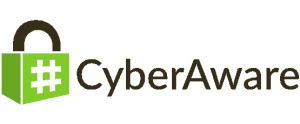NCSAM Week 2: Cybersecurity in the workplace
 Happy National Cyber Security Awareness Month: Week 2! This week is all about creating a culture of cybersecurity at work. Businesses, organizations, and academic institutions face cybersecurity risks because they deal with large stores of sensitive data. This makes them prime targets of cybercriminals. Therefore, institutions in both the private and public sectors, in every industry, need to make cybersecurity a top priority.
Happy National Cyber Security Awareness Month: Week 2! This week is all about creating a culture of cybersecurity at work. Businesses, organizations, and academic institutions face cybersecurity risks because they deal with large stores of sensitive data. This makes them prime targets of cybercriminals. Therefore, institutions in both the private and public sectors, in every industry, need to make cybersecurity a top priority.
From October 5th to 9th, NCSAM focuses on providing resources to help workplaces promote cultures of cybersecurity. Events and conversations around the country will focus on employee education and the implementation of cybersecurity tools like the DHS C3 Voluntary Program. You can check out a list of NCSAM Week 2 goings-on here, courtesy of Stay Safe Online.
Cybersecurity at Elon
As it happens, Elon University just recently hired Keith Schoenefeld as its first Information Security Director. Mr. Schoenefeld has only been here for a month and a half, but he is excited about helping Elon become a more cyber-secure university. “As far as I can tell, once Elon makes something an institutional priority, it’s pursued as effectively and efficiently as possible,” Shoenefeld says.
The primary aim of spreading cybersecurity awareness in the workplace is to ensure that people don’t become complacent in handling the large caches of sensitive information they have been entrusted with. In his new position, Shoenefeld will be examining the procedures and processes Elon employees—including student workers—use to store and transmit private information. He looks forward to working with departments such as Financial Aid, Admissions, and Human Resources.
According to Schoenefeld, it’s important to make sure that we are using the most cyber-secure practices, even if that means altering current procedures. “It’s important to ask, is this how I would want my personal information to be handled?” he says.
What you can do to help
Some of us might have trouble slowing down and really taking the time to evaluate how cyber-secure we are—especially during flurry of activity and anxiety that is midterms week—but it’s important for each one of us to occasionally reflect on our own practices. Cybersecurity is pretty much a risk management issue: How comfortable are you with the amount of private information you’re making available online; do you even know what info you’re putting out there that others can access? If you’re ever in a position where you are entrusted with someone else’s sensitive data, are you handling it the way you would want someone else to handle your information?
The average computer user might not be able to directly detect a cybersecurity breach on their device. Instead, they might notice symptoms of a cybersecurity issue, like the fact that their device is running slowly, or they keep receiving emails in response to a message they never sent. If you notice any phishy behavior on your own device, a trip to the service desk might diagnose the problem as a cybersecurity issue.
You can also follow Elon Technology on Facebook and Twitter, where a new cybersecurity tip will be posted each day in October, and follow the official hashtag for NCSAM 2015 (#CyberAware) all month long.

 Follow
Follow

